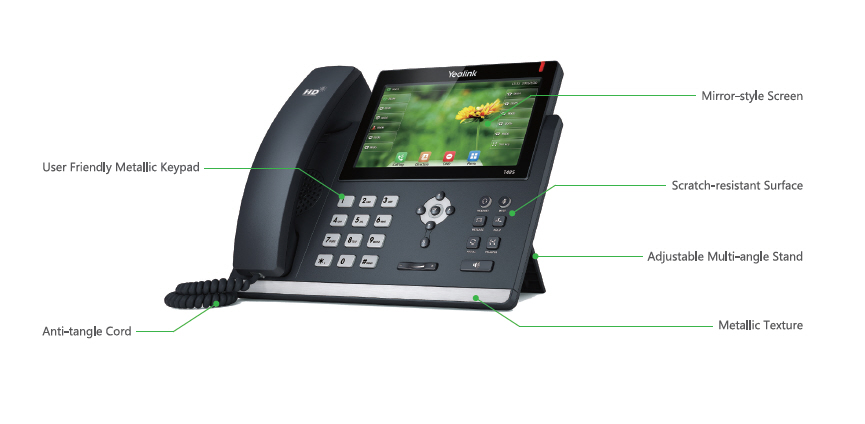Introduction
When it comes to modern communication technologies, Hosted Voice over Internet Protocol (VoIP) is a game-changer. Businesses are increasingly opting for voip telephone services due to their flexibility, scalability, and cost-effectiveness. However, choosing the right hardware for your hosted VoIP setup can be daunting. What equipment do you need? How do you ensure that you’re getting the best performance? In this comprehensive guide, we’ll delve into the intricacies of selecting the best hardware for your VoIP system while addressing common questions and concerns.
Choosing the Right Hardware for Your Hosted VOiP Setup
Selecting appropriate hardware is crucial to ensuring that your hosted VoIP service operates smoothly and efficiently. The quality of your transmission directly influences customer interactions and overall satisfaction. So, how do you go about making an informed choice?
Understanding Hosted VoIP Services
Before diving into hardware specifics, let’s clarify what hosted VoIP services entail. Unlike traditional phone systems that rely on physical lines and equipment, hosted VoIP utilizes cloud technology. This means that calls are made over the internet using specialized software instead of conventional telephone lines.
Advantages of Hosted VoIP Services
Cost Efficiency: One of the most significant benefits is reduced costs; businesses save on installation fees and ongoing maintenance expenses. Scalability: Adding or removing lines can be done swiftly without needing extensive infrastructure changes. Flexibility: Employees can work remotely without losing connectivity. Advanced Features: Features like voicemail-to-email, call forwarding, and conferencing are often included at no extra cost.Key Components of a Hosted VoIP Setup
To optimize your hosted VoIP experience, certain components are essential:
VoIP Phones Switches Routers Headsets FirewallsLet’s explore each component in detail.
VoIP Phones: The Heart of Your Communication System
When thinking about hosted VoIP setups, voip phones are arguably the most critical piece of hardware you'll need.
Types of VoIP Phones
SIP Phones: These are dedicated devices designed specifically for VoIP calls. Softphones: Software applications that enable voice calls through computers or mobile devices. Analog Telephone Adapters (ATAs): Allow traditional phones to connect to a digital network.What to Look For in a VoIP Phone
- Compatibility with your service provider Quality of audio output Additional features like video calling or conference capabilities
Switches: Ensuring Smooth Communication Flow
A good switch is essential for managing network traffic effectively.
How Switches Work in a Hosted VoIP Environment?
Switches direct data packets between devices on a local network efficiently, which is crucial since voice data needs to be transmitted quickly without delays.
Managed vs Unmanaged Switches
- A managed switch allows for greater control over traffic flow but requires more technical knowledge. An unmanaged switch is simpler but less flexible.
Best Practices for Setting Up Switches in Your Office
Ensure Quality of Service (QoS) settings prioritize voice traffic. Regularly update firmware.Routers: Gateway to the Internet
Your router serves as the gateway between your internal network and external internet connections.
Choosing the Right Router for Your Business Needs
You want a router that provides robust security features and can handle multiple simultaneous connections without lagging.
Key Features
- Dual-band capability Built-in firewall VPN support
Headsets: Enhancing User Experience
While not always considered primary hardware, headsets can significantly improve call quality and user comfort.
Different Types of Headsets
Over-ear headphones In-ear options Wireless Bluetooth headsetsConsiderations When Buying Headsets
- Noise cancellation features Comfort during extended use Battery life (for wireless models)
Firewalls: Securing Your Network Infrastructure
Firewalls protect against unauthorized access that could disrupt your communication systems.
Importance of Firewalls in a Hosted VoIP Setup
Security should never be an afterthought; ensuring proper configurations will keep your business safe from potential breaches.
Types of Firewalls
Hardware Firewalls Software FirewallsFAQ Section
What is Hosted VoIP?
Hosted VoIP refers to phone services delivered via cloud technology rather than traditional phone lines.

How Do I Choose Between SIP Phones and Softphones?
The choice depends on your business needs—SIP phones offer better audio quality while softphones offer mobility.
Do I Need Special Equipment for Hosting My Own VoIP?
You may need specific routers or switches optimized for voice traffic but generally do not need extensive hardware investments if using third-party providers.
Is Quality Assurance Important in Choosing Hardware?
Absolutely! Quality assurance ensures seamless communication without interruptions or poor audio quality.
Can I Use Existing Phones with Hosted VoIP?
Yes! Many analog phones can be adapted using Analog Telephone Adapters (ATAs).
What Factors Affect Call Quality?
Network congestion, bandwidth limitations, and poor equipment choices all contribute to call quality issues.
Conclusion
Choosing the right hardware for your hosted VOiP setup isn’t just about picking up some random devices off the shelf; it requires careful consideration based on your unique business needs and goals. From understanding various types of voip telephone services available in the market to assessing each component's functionality—like switches, routers, headsets, and firewalls—the decision-making process can seem overwhelming at times but ultimately rewarding once executed properly!
By following this guide on “Choosing the Right Hardware for Your Hosted VOiP Setup,” you’ll not only enhance communication within your organization but also position business phone system solutions yourself as a forward-thinking entity ready to embrace future technological advancements!